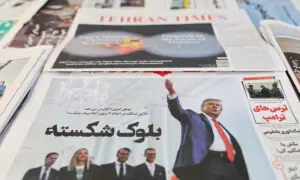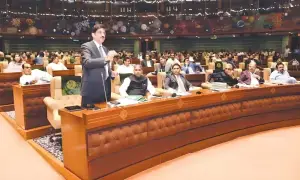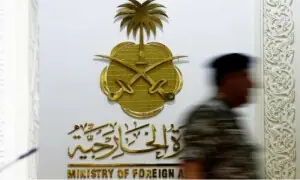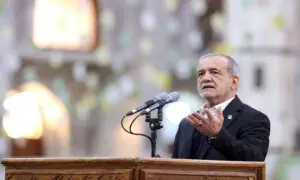Pakistan calls for reform, transparency in UN Security Council’s subsidiary bodies
3 min readThe UN Security Council must be more “transparent and inclusive” in conducting its business to meet the challenges posed by global, regional conflicts and crises, Pakistan’s Ambassador to the UN Munir Akram has said.
While delivering Pakistan’s statement at a debate on Working Methods under the long-running Intergovernmental Negotiations on Security Council Reforms, he said that while everyone was agreed on early restructuring of the 15-member body, the ‘Pact for the Future’, which the world leaders adopted last September, called for strengthening the entire UN system, including the General Assembly, the Economic and Social Council and the Peacebuilding Commission.
Ambassador Akram proposed focusing on moving on all fronts to reform the UN bodies.
While responding to a suggestion during the debate for reflecting on “new realities”, he said doing that would again freeze the Council at a particular time in its 1945 framework – when the world body was established.
“Any expansion of permanent members would freeze the Council at that moment; It is only through the process of elections that the new realities that constantly change can be reflected in the composition of the Security Council, not by adding new permanent members,” the Pakistani envoy said.
He was referring to the campaign by India, Brazil, Germany and Japan – known as the Group of Four – for permanent seats as they seek expansion of the Council by 10 seats, with six additional permanent and four non-permanent members.
On the other hand, the Italy, Pakistan-led Uniting for Consensus (UfC) group proposed a new category of members – not permanent members – with longer duration in terms and a possibility to get re-elected, raising the number of elected seats to 21.
The UNSC is composed of five permanent members – Britain, China, France, Russia and the United States – and 10 non-permanent members elected to serve for two years.
The discussions over the years have revealed convergences as well as divergences on various elements of reform – convergence on priority for Africa, expanding the membership of developing countries and on the need for representation of regional and cross-regional groups, the Pakistani envoy said.
“But these discussions and the presentation of models have also revealed the divergences and these are considerable divergences on the size of the Council, on the issue of the categories of membership, on regional representations, on the veto, and even on working methods where there is a large convergence.”
On working methods, Ambassador Akram called for transparency, open meetings, and more interactive open meetings.
“There is most importantly the need for democracy and that it can be inducted through the role of elected members, not permanent members,” the Pakistani envoy said.
“We need to have a larger role for the elected members and to break the oligopoly of the P5 (the five permanent members) in the Security Council.”
Ambassador Akram also called for more transparency in the working of the Security Council’s subsidiary bodies.
Also, read this
Pakistan condemns Israel for ‘deliberately targeting’ healthcare in Gaza
PM Shehbaz leads Pakistani delegation’s walkout during Israeli PM Netanyahu’s speech at UNGA session
Afghan people should not bear the brunt of the Afghan government’s mistakes: Akram
“There must be a greater, transparent process for selection or rejection of a Chair for various groups – certain groups cannot monopolise areas that are critical,” he said. The ambassador recommended representation of regional bodies and cross-regional groups in all the interactive discussions of the Council.
The Pakistani envoy underscored the need for a review of the Council’s sanctions regimes. “We believe that the whole issue of how Chapter 7 (enforcement) resolutions are adopted needs to be reconsidered.”
Ambassador Akram called for a mechanism to monitor and implement UNSC resolutions.
For the latest news, follow us on Twitter @Aaj_Urdu. We are also on Facebook, Instagram and YouTube.























Comments are closed on this story.